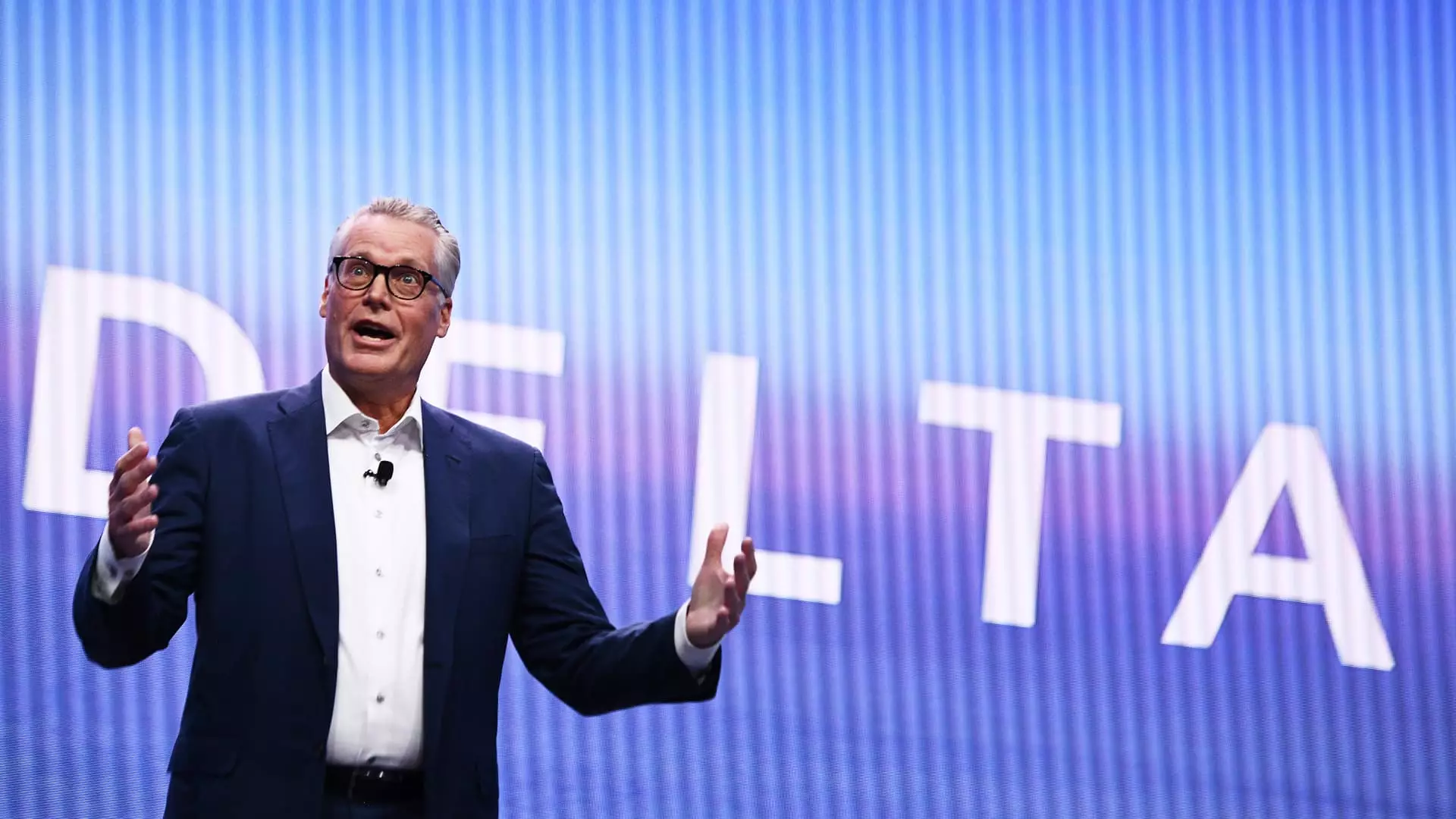Delta Air Lines CEO, Ed Bastian, recently took steps to express gratitude towards his employees following the significant disruptions caused by a botched CrowdStrike software update that impacted thousands of customers and crew members. These disruptions led to the cancellation of more than 5,000 flights between July 19 and July 24, costing the company approximately $500 million. This figure represents a substantial portion of Delta’s second-quarter profit, indicating the severity of the situation. The disruptions not only affected the airline industry but also had broader implications across various sectors, including health care and banking.
In an attempt to show appreciation for the hard work and dedication of Delta staff during this challenging period, Bastian offered employees two free travel passes. While this gesture may have been well-intentioned, it has come under scrutiny from some quarters. The Delta organizing committee of the Association of Flight Attendants-CWA criticized the offer, stating that it falls short of addressing the root causes of the disruptions and preventing future similar incidents. The committee highlighted the need for more significant structural changes within the company to ensure smoother operations in the future.
Despite the significant setbacks caused by the disruptions, Delta has managed to stabilize its operations in the aftermath. The airline has processed numerous refund and reimbursement requests, indicating its commitment to addressing customer concerns. However, the U.S. Department of Transportation has initiated an investigation into the disruptions, signaling the seriousness of the situation. Delta’s decision to pursue legal action against CrowdStrike and Microsoft further underscores the company’s determination to hold accountable those responsible for the outage.
The disruptions faced by Delta serve as a stark reminder of the importance of robust cybersecurity measures and contingency plans in today’s digital age. Airlines, like other industries, are increasingly reliant on technology, making them vulnerable to such incidents. It is essential for companies to prioritize investment in cybersecurity and IT infrastructure to prevent similar disruptions in the future. Moreover, fostering a culture of accountability and transparency within organizations is crucial to addressing challenges effectively and ensuring customer satisfaction.
Delta Air Lines’ response to the recent software disruptions highlights both the resilience of its staff and the need for continuous improvement in operational efficiency and cybersecurity. While the offer of travel passes may have been a gesture of goodwill, it is imperative for the company to address the underlying issues that led to the disruptions and implement robust measures to prevent recurrences. By learning from this experience and taking proactive steps to enhance its operations, Delta can strengthen its position as a leading airline and regain the trust of its customers and employees alike.

